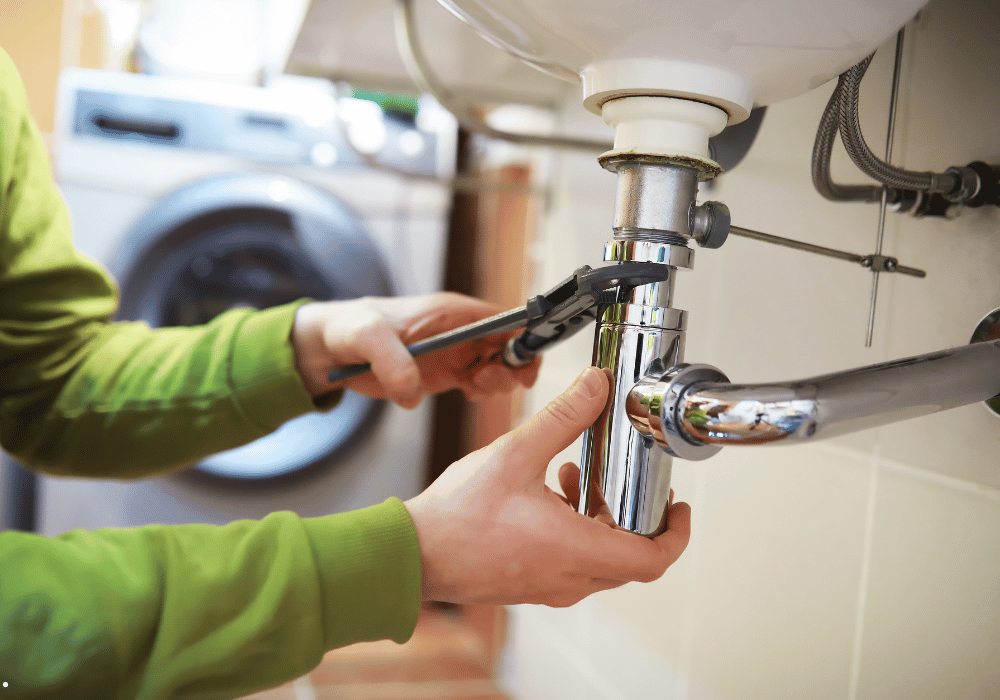Your home is a sanctuary, a place of comfort and security. Yet, lurking beneath the surface can be hidden culprits that threaten your peace—clogged drains. While it’s easy to overlook them until an issue arises, regular drain maintenance is vital for maintaining a healthy and functional home. In this post, we’ll uncover the significance of drain maintenance, offer practical tips, and explain how staying proactive can save you from costly repairs down the line.
Why Drains Matter More Than You Think
Drains might not be the most glamorous part of your home, but they play a crucial role in maintaining its functionality. They whisk away water and waste, keeping your living space dry and sanitary. Without properly functioning drains, you’d face constant plumbing issues that disrupt daily life. Understanding their importance helps highlight why regular upkeep is essential.
Many homeowners underestimate how integral a well-maintained drainage system is to their home’s health. Blocked or slow drains can lead to water damage, unpleasant odors, and even structural issues if left unattended. By prioritizing drain maintenance, you’re ensuring that your home’s infrastructure remains robust and resilient.
Proactive care of your drains not only protects your property but also promotes environmental sustainability. Clogged drains often result in excess water usage as homeowners try to flush away blockages. Regular maintenance minimizes this waste, benefiting both the environment and your water bill.
Common Causes of Clogged Drains
Several factors contribute to clogged drains, and identifying these culprits is the first step in preventing issues. Hair is a notorious offender in bathroom drains, binding with soap residue to form stubborn blockages. Installing a simple drain cover can catch hair before it becomes a problem.
In the kitchen, grease and food particles are frequent troublemakers. Although it may seem harmless to pour grease down the drain, it solidifies as it cools, leading to buildups that restrict water flow. Scraping plates into the trash and using strainers can help prevent these blockages.
Tree roots can also infiltrate underground pipes, causing significant damage over time. Regular inspections using camera technology can detect early signs of root intrusion, allowing for timely intervention. Understanding what causes clogs enables you to take preventative measures and keep your drains clear.
DIY Drain Maintenance Tips
Taking charge of your drain maintenance doesn’t have to be complicated or expensive. Simple practices can make a big difference. Start by routinely flushing drains with hot water. This helps dissolve minor buildups before they become major obstructions.
Baking soda and vinegar are effective natural cleaners. Pour half a cup of baking soda followed by a cup of vinegar down the drain. Allow the mixture to fizz and settle for about 15 minutes, then flush with hot water. This method can effectively break down organic material and eliminate odors.
Additionally, using a plunger can address minor clogs. Ensure a tight seal over the drain and plunge vigorously to dislodge debris. Regularly cleaning visible parts of sinks and showers also prevents buildup and maintains optimal flow.
When to Call a Professional
While many drain issues can be managed with DIY methods, some situations require professional intervention. If you notice persistent slow drainage despite routine cleaning, it may signal a more complex problem like pipe corrosion or severe blockages further down the line.
Foul odors emanating from drains often indicate trapped waste or bacterial growth, necessitating professional cleaning. Plumbers have specialized tools and expertise to thoroughly clean and deodorize your system, restoring a fresh environment to your home.
Repeated drain backups present another scenario where professional help is warranted. Persistent issues suggest underlying complications that only experts can address, ensuring a long-term solution and preventing future recurrence.
Tools Every Homeowner Should Have
Equipping yourself with basic tools can empower you to tackle drain issues as they arise. A plunger is a must-have for clearing minor clogs in sinks, toilets, and showers. Its simple design and effectiveness make it an invaluable addition to your toolkit.
Drain snakes or augers are excellent for reaching deeper clogs. These flexible tools can maneuver through pipes to dislodge blockages that plungers cannot reach. Investing in a quality snake ensures that you’re prepared for unexpected clogs.
Enzyme-based cleaners offer a chemical-free alternative for maintaining clear drains. These cleaners use natural bacteria to break down organic matter, providing a safe and eco-friendly solution for routine maintenance.
The Risks of Neglecting Drain Maintenance
Ignoring drain maintenance can lead to a cascade of problems that extend beyond mere inconvenience. Blocked drains can cause water to back up into your home, damaging walls, floors, and personal belongings. The resulting repairs can be both extensive and costly.
Furthermore, stagnant water from clogged drains becomes a breeding ground for mold and bacteria, posing health risks to your family. Regular drain maintenance eliminates these hazards, ensuring a safe and healthy living environment.
Neglected drains also reduce your home’s value. Potential buyers are wary of homes with plumbing issues, viewing them as red flags. By maintaining your drains, you safeguard your investment and enhance its market appeal.
How Drain Maintenance Saves Money
Investing time and resources into regular drain maintenance yields significant financial benefits in the long run. Preventative measures reduce the likelihood of major plumbing issues, sparing you from costly emergency repairs and replacements.
Routine maintenance extends the life of your plumbing system. By keeping drains clean and free from blockages, you reduce wear and tear on pipes, preventing premature failure and the associated expenses.
Additionally, efficient drainage systems conserve water, leading to lower utility bills. By minimizing waste and optimizing flow, regular maintenance proves to be a cost-effective strategy for managing household expenses.
Environmental Benefits of Regular Maintenance
Maintaining clear drains contributes to environmental preservation. Clogged drains often require excessive water use to clear, straining local water resources. By preventing blockages, you reduce unnecessary consumption and conserve this vital resource.
Proper drain maintenance also minimizes the need for harsh chemical cleaners, which can harm aquatic ecosystems when they enter waterways. Opting for natural cleaning methods supports sustainable living practices and protects the environment.
Additionally, efficient drainage systems reduce the risk of sewage leaks and contamination. By maintaining your drains, you ensure that waste is properly managed, safeguarding both your community and the planet.
How Often Should You Clean Your Drains?
The frequency of drain cleaning depends on usage patterns and household size. For an average household, monthly maintenance is a good rule of thumb. Regular cleanings prevent minor buildups from becoming major issues, ensuring smooth operation.
High-traffic areas like kitchens and bathrooms may require more frequent attention. Weekly cleaning of visible drains and fixtures can prevent grease, soap, and hair from accumulating and causing clogs.
For complete peace of mind, consider scheduling professional inspections and cleaning annually. Plumbers can detect and address hidden issues before they escalate, providing an additional layer of protection for your home.
Choosing the Right Products
Selecting the right products is crucial for effective drain maintenance. Avoid chemical cleaners that can corrode pipes and harm the environment. Instead, opt for enzyme-based cleaners that safely break down organic matter without damaging plumbing.
When purchasing a drain snake, choose a flexible model that can easily maneuver through pipes. Look for durable construction and user-friendly features, ensuring ease of use and longevity.
For enzyme cleaners, read product labels to confirm they contain natural ingredients and are safe for septic systems. These products offer an eco-friendly option for maintaining clear, odor-free drains.
Building a Maintenance Routine
Establishing a drain maintenance routine is key to preventing issues and ensuring your system runs smoothly. Dedicate a specific time each month to inspect and clean drains, incorporating DIY methods and tools.
Involve your household in the maintenance process. Educate family members about what can and cannot go down the drain, promoting responsible habits that protect your plumbing.
Keep a maintenance log to track your efforts and note any recurring issues. This record can be a valuable reference when scheduling professional inspections or addressing persistent problems.
Regular drain maintenance is an essential aspect of homeownership that shouldn’t be overlooked. By understanding its importance, implementing preventative measures, and knowing when to call professionals, you can protect your home from costly damage and maintain a healthy living environment.
Start incorporating these maintenance practices today to keep your drains flowing smoothly and your home operating efficiently. For those ready to take the next step, consider consulting a plumbing professional for personalized advice and expertise. Together, you can ensure your home’s plumbing is in top-notch condition, providing peace of mind and lasting value. Questions? Contact a local plumber in your area.

